試す 金 - 無料
Create a wall mural
PhotoPlus : The Canon Magazine
|Spring 2022
James Paterson shoots and edits photos for jaw-dropping wall displays

THE MISSION
How to make huge, detailed images for wall murals with our shooting and tips
Time needed Two hours
Skill level Expert
Kit needed Tripod Photoshop CC
As anyone with a printer will know, it's nice to see your images on paper. But gazing upon an entire wall print of your own creation takes things to a whole new level. Wall murals are becoming increasingly popular in offices, restaurants and homes and, thanks to healthy competition between printers, they're more affordable than ever.
So why not create your own whopping wall display? Over the next few pages we'll look at how it's done, from shooting the image to making the mural. And even if you don't fancy making a floor-toceiling photo, you'll find plenty of useful advice on creating ultra-detailed images.
Of course, deciding to turn an entire wall into a photo display is a big commitment, and something you might have to live with for years to come. There are lots of choices to be made: Which wall? Which printer? And most importantly, what kind of image? You can't just use any photo to create a wall-length print. Pixel count is the name of the game here. We need a vast amount of detail for a metres-long print, so we need to wring as much quality as possible out of our cameras.
There are several ways we can do this. First, our choice of lens, aperture and camera gear will all have a bearing on sharpness and detail. Then there are techniques like panorama stitching and HDR imaging that can help us to maximize the resolution and quality of the image. To squeeze every last detail out of the sensor can be a rewarding task, and even more so when you get to see the results on a room-size scale.

このストーリーは、PhotoPlus : The Canon Magazine の Spring 2022 版からのものです。
Magzter GOLD を購読すると、厳選された何千ものプレミアム記事や、10,000 以上の雑誌や新聞にアクセスできます。
すでに購読者ですか? サインイン
PhotoPlus : The Canon Magazine からのその他のストーリー
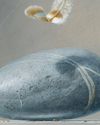
PhotoPlus : The Canon Magazine
The Art of Copying Art - James Paterson shows you how to use your Canon gear to capture artwork and paintings the right way with simple camera and lighting skills
Whether you want to capture a painting like the above, digitise old prints or reproduce any kind of canvas, there's real skill in capturing artwork with your camera. Not only do you need the colours to be accurate, you also need to master the spread, angle and quality of the light to minimise glare and show the work at its best.This painting by the artist Bryan Hanlon has a wonderfully subtle colour palette. To reproduce the painting in print and digital form, it needs to be captured in the right way.
1 mins
October 2024
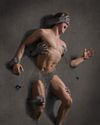
PhotoPlus : The Canon Magazine
Fright night
Canon photographer and digital artist Alexander loves to craft incredible fantasy scenes with a spooky horror twist
1 mins
November 2024

PhotoPlus : The Canon Magazine
Sharpen your shots with DPP
Sharpening a digital image also increases contrast at the edge of details
2 mins
November 2024

PhotoPlus : The Canon Magazine
CANON ImagePrograf PRO-1100
Deeper blacks, better bronzing, greater lifespan and 5G Wi-Fi -Canon's new printer is full of new tech, says
3 mins
November 2024
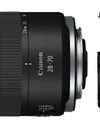
PhotoPlus : The Canon Magazine
Canon's new 'kit lens' is actually a half-price f/2.8 trinity lens!
The Canon RF 28-70mm F2.8 IS STM lacks a red ring, but borrows premium features from its L-series siblings
2 mins
November 2024

PhotoPlus : The Canon Magazine
DREW GIBSON
Pro motorsports photographer Drew on why he hasn't (yet) switched to Canon's mirrorless system, why old-school techniques can be the most reliable, and the lessons learned from more than a decade shooting the world's biggest car brands
11 mins
November 2024

PhotoPlus : The Canon Magazine
Up in smoke
Make a smoky shape in Affinity Photo and get to grips with the amazing Liquify Persona under the guidance of James Paterson
3 mins
November 2024

PhotoPlus : The Canon Magazine
Expand your creativity with Generative Fill
Photoshop's Al-powered feature brings revolutionary new tools to image editing. James Paterson reveals all...
2 mins
November 2024
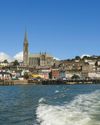
PhotoPlus : The Canon Magazine
Turn your images into vintage postcards
Wish you were here? Sean McCormack explains how you can give your summer photographs a vintage postcard look
2 mins
November 2024
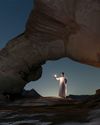
PhotoPlus : The Canon Magazine
The Angel Malibu
Light painting an American movie producer in the Wadi Rum Desert in Jordan was a highly unlikely evening out for David!
3 mins
November 2024
Translate
Change font size
